As mobile technology evolves, developers, gamers, and businesses are increasingly turning to cloud-based Android emulators to run Android systems remotely. Unlike traditional emulators that rely on your local hardware, cloud emulators host Android virtual machines on remote servers, allowing you to access full Android environments from almost any device with an internet connection.
These tools are ideal for app testing, game automation, multi-instance management, and remote mobile operations without the need for powerful hardware. They also provide better scalability, 24/7 uptime, and improved performance for demanding workflows.
In this article, Top 10 Cloud Phone Systems for Android Emulation, we’ll look at some of the most popular solutions available today and explore who can benefit from them.
Quick-Scan Matrix: Top 10 Cloud Android Emulators
This table is a fast, side-by-side snapshot of leading cloud Android emulation platforms. It highlights how each service works at a high level (core principle), what OS/device choices you get (Android versions, preset device profiles), the typical latency you can expect, and each platform’s standout feature, so you can shortlist tools in seconds without wading through marketing pages.
| Platform | Core principle of operation | OS / device selection | Typical latency | Standout feature |
|---|---|---|---|---|
| GeeLark | Cloud “anti-detect phone” instances | Android phone profiles (anti-detect focus) | <100 ms (target) | Markets itself as an “anti-detect phone” for multi-accounting; team sharing |
| VMOS Cloud | Virtual Android OS in the cloud | Standard Android environments | <150 ms (target) | Root access by default; strong isolation |
| RedFinger | Persistent cloud phone (24/7) | Standard Android environments | <100 ms (target) | Always-on sessions for long-running tasks |
| LDCloud | Performance-tuned cloud Android | Tiers by RAM/storage; gaming-oriented | <120 ms (target) | Price-to-performance; multi-instance sync |
| DuoPlus | Stable cloud Android service | Standard Android environments | (not stated) | High uptime; business-friendly simplicity |
| Genymotion Cloud | SaaS Android devices (also on AWS/Azure/GCP) | Android 5–15; 40+ preconfigured devices | <80 ms (target) | Deep sensor emulation; CI/CD integrations |
| UGPhone | Low-latency cloud Android for gaming | Standard Android environments | (varies by region) | Game-tuned performance; regional servers |
| Appetize.io | 100% browser-based device streaming | Android & iOS in browser | (not specified) | Instant launches; easy embedding & sharing |
| BrowserStack (App Live) | Real physical devices in the cloud | 3,000+ real devices (Android/iOS) | <50 ms (target) | Real-device accuracy; enterprise QA tooling |
| NOX/MEmu Cloud | Cloud versions of desktop emulators | Familiar Android stacks; gaming focus | (TBD/beta) | Desktop-like UI in the cloud; budget plans |
TOP-10 Android Cloud Emulators: Complete Analysis 2025
1. GeeLark (geelark.com)
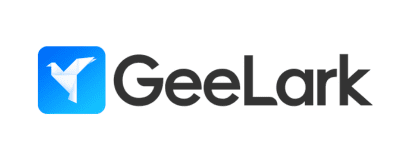
GeeLark positions itself as the industry’s first “anti-detect phone,” designed specifically for managing multiple accounts across social media and other applications where profile uniqueness is critical, see this independent roundup of the best antidetect browsers.
Key features:
- Unique device fingerprint generation
- IMEI emulation
- Proxy support
- Action synchronization between devices
- Multiple profile management
- Android 7-12
| PROS & BEST FOR | CONS |
|---|---|
| ✅ Best device fingerprint generation | ❌ Expensive ($8-30/month) |
| ✅ Professional anti-detect features (IMEI, Device ID) | ❌ Complex pricing structure |
| ✅ Built-in TikTok automation tools | ❌ Not optimized for gaming |
| ✅ Perfect for SMM multi-accounting | ❌ Steeper learning curve |
| ✅ Team collaboration with unlimited members | |
| ✅ Proxy support (HTTP/SOCKS5) |
Pricing:
- Discounts: 10% (90 days), 20% (180 days), 30% (360 days)
- Free Plan: 2 profiles + limited TikTok automation features
- Base Plan: from $5/month (5 cloud profiles included, additional minutes)
- Pro Plan: advanced features for professionals
2. VMOS Cloud (vmoscloud.com)
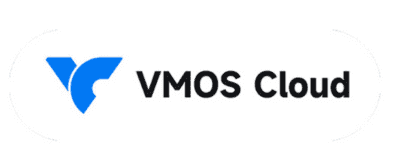
VMOS Cloud provides a complete virtual Android system with root access enabled by default. It’s like running a second phone in the cloud with full system control.
Key features:
- Root access by default
- Independent operating system
- Multiple instance support
- Google Play Services support
- Android 7.1 and 9.0
| PROS & BEST FOR | CONS |
|---|---|
| ✅ Root access enabled by default | ❌ Limited gaming performance |
| ✅ Complete system isolation and security | ❌ Documentation mostly in Chinese |
| ✅ Perfect for testing mods and cheats | ❌ Fewer anti-detect features |
| ✅ Safe testing of suspicious APKs | |
| ✅ App cloning capabilities | |
| ✅ Affordable ($5-15/month) |
Price: Freemium model, premium from $5-15/month




3. RedFinger (cloudemulator.net)
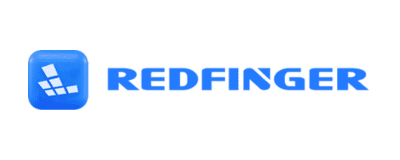
RedFinger specializes in running Android applications 24/7 in the cloud. Ideal for tasks requiring constant uptime without draining local device resources.
Key features:
- 24/7 operation without interruptions
- No local device resource consumption
- Multiple profiles
- Cross-device synchronization
- Optimized for gaming
| PROS & BEST FOR | CONS |
|---|---|
| ✅ True 24/7 operation without interruption | ❌ Interface primarily in Chinese |
| ✅ Perfect for AFK game farming | ❌ Higher latency for real-time games |
| ✅ Zero local resource consumption | ❌ Limited customization options |
| ✅ Auto-restart on crashes | |
| ✅ Cross-device synchronization | |
| ✅ Affordable ($6-20/month) |
Pricing:
- Premium: $18-20/month per device with better specs
- Free Trial: Limited time with restrictions
- Basic: $6-10/month per device (30 days)
- Standard: $12-15/month per device (30 days)
4. LDCloud (ldcloud.net)
LDCloud is the cloud version of popular LDPlayer emulator, focusing on delivering high performance for mobile gaming at competitive prices. Known for excellent price-to-performance ratio.

Key features:
- Various configurations (VIP, SVIP, XVIP, KVIP)
- Up to 8GB RAM in top tiers
- Android 7-10
- Root access in some plans
- Synchronization
- 128GB storage (XVIP)
| PROS & BEST FOR | CONS |
|---|---|
| ✅ Best price-to-performance ratio ($3-10/month) | ❌ Support primarily in Chinese |
| ✅ Multiple configuration tiers (2-8GB RAM) | ❌ Limited server locations (Asia) |
| ✅ Root access available | ❌ Some game compatibility issues |
| ✅ Perfect for budget-conscious gamers | |
| ✅ Multi-instance synchronization | |
| ✅ Up to 128GB storage |
Pricing:
- KVIP: Custom (8GB RAM, premium support)
- VIP: $3-4/month (2GB RAM, 30 days)
- SVIP: $5-6/month (4GB RAM, 30 days)
- XVIP: $8-10/month (6GB RAM, 60 days)
5. DuoPlus (duoplus.net)
DuoPlus emphasizes stable, consistent performance over flashy features. Known for excellent uptime and minimal downtime, making it reliable for mission-critical operations.
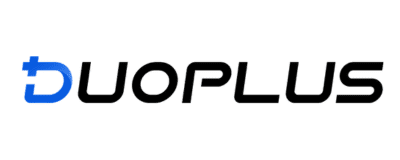
Key features:
- High performance
- Multiple device configurations
- Profile synchronization
- Game optimization
| PROS & BEST FOR | CONS |
|---|---|
| ✅ Excellent uptime guarantee (99%+) | ❌ Fewer advanced features |
| ✅ Reliable and stable performance | ❌ Smaller community |
| ✅ Simple, user-friendly interface | ❌ Limited documentation |
| ✅ Perfect for business and reliability | |
| ✅ Bulk device discounts available |

Pricing:
- Bulk discounts: Available for 5+ devices
- Standard: $5-8/month per device
- Advanced: $10-15/month with better specs
6. Genymotion Cloud (genymotion.com)
Genymotion Cloud is the enterprise-grade solution for professional developers and QA teams. Offers the most comprehensive testing environment with latest Android versions and advanced debugging tools.

Key features:
- AWS, Azure, GCP integration
- Android 5.0-15.0
- All sensors emulation (GPS, accelerometer, camera)
- Root access
- Battery and network configuration
- Play Services
- Automation API
- Multiple pre-configured device profiles
| PROS & BEST FOR | CONS |
|---|---|
| ✅ Latest Android versions (5.0-15.0) | ❌ Expensive (€99-299+/year) |
| ✅ AWS/Azure/GCP integration | ❌ Requires technical knowledge |
| ✅ Complete sensor emulation | ❌ Overkill for simple gaming |
| ✅ Perfect for professional app developers | ❌ Complex setup |
| ✅ Automation API for CI/CD pipelines | |
| ✅ 40+ pre-configured device profiles | |
| ✅ Enterprise security and compliance |
Price:
- Desktop: free (personal use), €99-299/year (commercial)
- Cloud SaaS: Pay-as-you-go, ~$0.10-0.50/hour depending on configuration
- Enterprise: custom pricing
7. UGPhone (ugphone.com)
UGPhone focuses on delivering low-latency cloud gaming experience. Optimized network infrastructure for responsive gameplay, making it suitable for competitive gaming.

Key features:
- Low latency
- Optimization for popular games
- Multiple devices
- Synchronization
| ✅ PROS & BEST FOR | ❌ CONS |
|---|---|
| ✅ Optimized for low latency | ❌ Performance varies by location |
| ✅ Perfect for competitive mobile gaming | ❌ Limited anti-detect features |
| ✅ Game-specific performance tuning | ❌ Not ideal for non-gaming tasks |
| ✅ Regional server selection | |
| ✅ Ideal for MOBA/FPS games | |
| ✅ Affordable ($4-12/month) |
Pricing:
- Packages: Bulk device discounts available
- Basic: $4-6/month per device
- Premium: $8-12/month with better specs
8. Appetize.io
Appetize.io is unique in being 100% browser-based with zero installation required. Perfect for app demonstrations, customer support, and quick testing scenarios.

Key features:
- Works directly in browser
- iOS and Android support
- Integration API
- No installation required
- Perfect for demos
- Session recording
| PROS & BEST FOR | CONS |
|---|---|
| ✅ 100% browser-based, zero installation | ❌ Expensive ($40/mo + pay-per-minute) |
| ✅ Instant device launch (seconds) | ❌ Not for 24/7 operations |
| ✅ iOS and Android support | ❌ Limited to demo/testing only |
| ✅ Perfect for app demonstrations | |
| ✅ Embed apps directly in websites | |
| ✅ Session recording and sharing |
Pricing:
- Pay-as-you-go: $0.05-0.10/minute after included minutes
- Free Trial: 100 minutes
- Starter: $40/month (100 minutes included)
- Growth: Custom pricing
9. BrowserStack App Live
BrowserStack doesn’t use emulators – it provides access to real physical Android and iOS devices in data centers. Gold standard for accurate compatibility testing.

Key features:
- Real devices (not emulators)
- 3000+ devices and browsers (not emulators!)
- Real-time debugging
- CI/CD integration
- Test recording
- Various Android versions
| PROS & BEST FOR | CONS |
|---|---|
| ✅ 3000+ REAL physical devices (not emulators) | ❌ Most expensive ($29-199+/month) |
| ✅ Accurate real-world testing | ❌ Session-based, not 24/7 |
| ✅ Perfect for professional QA teams | ❌ Requires technical expertise |
| ✅ CI/CD integration support | ❌ Overkill for gaming/farming |
| ✅ Parallel testing on multiple devices | |
| ✅ Enterprise-grade reliability |
Pricing:
- Enterprise: Custom pricing with SLA
- Live Plan: $29/month (1 parallel session, 1 user)
- App Live: $99/month (2 parallel, unlimited users)
- App Automate: $125/month (automation included)
10. NOX Cloud / MEmu Play Cloud
Cloud offerings from the makers of popular desktop emulators NoxPlayer and MEmu Play. Still in development/beta stage, bringing familiar desktop emulator interfaces to cloud.
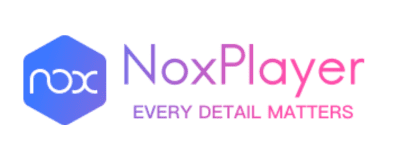
Key features:
- Familiar NOX/MEmu interface
- Game optimization
- Keyboard macros
- Root access
- Desktop version synchronization
| PROS & BEST FOR | CONS |
|---|---|
| ✅ Familiar desktop emulator interface | ❌ Still in beta/development |
| ✅ Perfect for existing NOX/MEmu users | ❌ Limited availability |
| ✅ Gaming-focused features | ❌ Uncertain long-term viability |
| ✅ Keyboard macro support | ❌ Pricing not finalized |
| ✅ Expected affordable pricing ($5-15/mo) |

Price: In development stage, approximately $5-15/month
Local or Cloud? The Real Difference in Android Emulation
The key distinction between local and cloud Android emulators lies in where the Android system actually runs:
Local Emulators run on your own computer’s hardware. Popular desktop solutions like BlueStacks, LDPlayer, or Android Studio’s emulator install a virtual Android environment directly on your PC or Mac. Performance depends entirely on your machine’s CPU, GPU, and RAM. They’re ideal for individual use, offline testing, or personal gaming.
Cloud Emulators, on the other hand, run on remote servers. You access these virtual Android devices through your browser or a lightweight client, while all the processing happens in the cloud. This enables high performance even on low-end hardware, 24/7 uptime, easy multi-instance scaling, and remote access from anywhere. They’re better suited for QA teams, developers, automation tasks, and business operations that require stable, scalable environments.
Architecture Differences
Local Emulators (BlueStacks, NoxPlayer, etc.)
How they work: Local emulators run directly on your PC using virtualization technology. They translate Android ARM instructions to x86/x64 architecture that your PC understands.
Technical architecture:
Your PC Hardware
↓
Virtualization Layer (VirtualBox/HAXM/Hyper-V)
↓
Android x86 System
↓
Your AppsCharacteristics:
✅ Run on your local machine
✅ Use your PC’s CPU, RAM, and GPU
✅ Require installation
✅ Need virtualization enabled in BIOS
✅ Performance depends on your hardware
❌ Consume electricity 24/7 if left running
❌ Limited by your PC specs
❌ Tied to one physical location
Cloud Emulators (GeeLark, LDCloud, etc.)
How they work: Cloud emulators run on remote servers with dedicated Android environments. You connect to them via internet and stream the screen to your device.
Technical architecture:
Cloud Server (ARM or x86 with Android)
↓
Android Instance (dedicated or containerized)
↓
Your Apps
↓
Streamed to Your Device (via internet)Characteristics:
✅ Run on remote servers
✅ Access from any device (phone, tablet, PC)
✅ No installation needed (browser-based)
✅ No local resources consumed
✅ Can run 24/7 independently
✅ Not limited by your hardware
❌ Require stable internet connection
❌ Monthly subscription costs
❌ Possible latency issues
When to Use Android Local Emulators?
Use BlueStacks/Local when:
- You have a powerful PC (16GB+ RAM, good CPU)
- Playing graphics-intensive games
- Need instant response (no latency)
- Working with sensitive data
- Using 1-3 instances maximum
- Don’t need 24/7 operation
- Budget is tight (<$10/month)
- Want offline access
- Need best graphics quality
Example scenario: Playing Genshin Impact, Honkai Star Rail, or other AAA mobile games that require good graphics and low latency.
When to Use Android Cloud Emulators?
Use Cloud solutions when:
- Need 5+ simultaneous instances
- Require 24/7 operation (farming)
- Limited local PC resources
- Want access from multiple devices
- Need different IP addresses/locations
- Require unique device fingerprints
- Want to save electricity
- Travel frequently
- Run automation/bots
Example scenario: Running 10 instances of an idle game for resource farming 24/7 while using your PC for other tasks
Final Recommendations
For Multi-accounting/SMM:
- Best choice: GeeLark
- Why: Best fingerprint management, anti-detection
For Developers/Testers:
- Primary: Genymotion Desktop or Android Studio
- Cloud backup: Genymotion Cloud or BrowserStack
- Why: Latest Android versions, debugging tools
For Gamers (1-2 accounts):
- Best choice: BlueStacks or LDPlayer
- Why: Free, best performance, great for active play
For Farmers (5+ accounts):
- Best choice: LDCloud or RedFinger
- Why: Cheapest per instance, 24/7 operation
For App Demonstrations:
- Best choice: Appetize.io
- Why: Browser-based, easy sharing
Conclusion: how to choose, when to use
Cloud Android emulation has matured into a practical, business-ready layer for mobile-first work, SMM, geo-checks, e-commerce ops, QA, and beyond. The winning setup is simple: pick a platform that delivers authentic device signals and keeps network parity straight (cellular profile ↔ mobile proxy; Wi-Fi profile ↔ residential proxy). Do that consistently, and you’ll cut flags, stabilize throughput, and scale with less stress.
The cloud-Android market is consolidating around platforms that bundle anti-fingerprinting + proxy management + team tooling in one place. Expect stronger device realism, smarter policy-change handling, and tighter proxy orchestration. Point solutions will survive, but all-in-one stacks will capture the high-stakes, at-scale workflows.
Good luck – and may your sessions stay clean, your throughput steady, and your earnings grow.
Frequently Asked Questions
Which one is the best Android emulator?
It depends on the goal: Business / mobile authenticity & account safety: Multilogin with cloud Android profiles (realistic device + network fingerprints, team features, built-in proxies). Gaming on a personal PC: there’s no single winner, performance varies by your CPU/GPU and the games you play. Popular fast options include BlueStacks, LDPlayer, and GameLoop. Test a couple on your hardware.
What is an Android emulator?
Software (or a cloud service) that runs Android on non-Android hardware e.g., a desktop or in the cloud so you can use mobile apps and mobile-only websites without a physical phone.
Does BlueStacks slow down the PC?
Any emulator can feel “heavy” if resources are tight. BlueStacks uses CPU, RAM, and GPU acceleration; on low-spec systems or with multiple instances, your PC may slow down. Mitigations: enable hardware virtualization (VT-x/AMD-V), put the emulator on an SSD, cap FPS, and allocate sensible CPU/RAM per instance.
Which Android emulator is the fastest?
There’s no universal fastest. Speed is determined by: your CPU/GPU, drivers, storage (SSD vs HDD), emulator build, and the specific app/game. On Windows gaming rigs, LDPlayer/BlueStacks/GameLoop often benchmark well; on macOS and for dev/QA, the Android Studio Emulator with hardware acceleration is typically quickest.
Why do people use Android emulators?
Run mobile-only apps on desktop QA/testing across devices, OS versions, and geos Social, e-commerce, and ads workflows that require a mobile environment Gaming with keyboard/mouse and higher frame rates Cost/control vs maintaining a fleet of physical phones
















